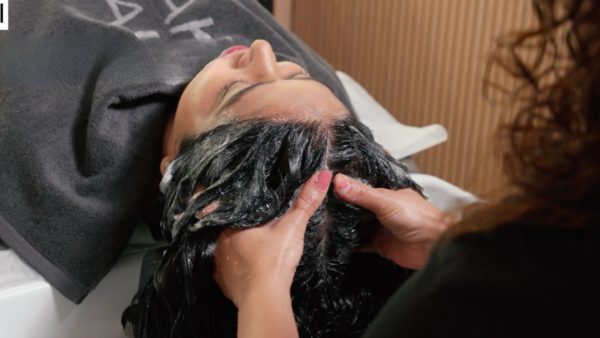Pregnant women are known to have a perceptible glow to their skin, and their hair is usually shinier and bouncier as well. Most doctors attribute this effect to folic acid, which is a major component in prenatal vitamins. The radiant skin and bouncy strands are a welcome side effect to one of folic acid’s most important functions—protecting the neural development of the growing foetus. But many doctors now suggest that improving Vitamin B9 levels is important for everyone, particularly women in their 20s and 30s. What gives? We spoke to two experts to find out.
What is folic acid?
“Folic acid (or Vitamin B9) plays an important role in energy production and cellular metabolism within the body,” says Dr Pankaj Chaturvedi, consultant dermatologist and specialist hair transplant surgeon, Medlinks. “When found naturally in foods, it’s called folate, but supplements are referred to as folic acid. It has been found to help keep your hair and nails healthy in the longer scheme of things, but it’s always better to do a thorough blood analysis before opting for supplements,” adds dermatologist Dr Geetika Mittal Gupta, founder and director at ISAAC Luxe.
How is folic acid good for skin?
“Folic acid provides increased hydration by maintaining skin barrier function. This can improve moisture retention and alleviate skin dryness. It is known to significantly reduce the signs of premature ageing by maintaining adequate collagen production. In combination with other important antioxidants, folate also helps to reduce the intensity of acne, as it works to eliminate toxins from your body,” explains Dr Chaturvedi.
“In some cases, folic acid supplementation can reverse the damage caused by the sun,” he adds. It is an antioxidant, which means it reduces the levels of oxidative stress in skin, and neutralises harmful free radicals that are present in the environment. This in turn improves the development of healthy new cells. “Elevated levels of the amino acid, homocysteine, may damage the production of cells in your body by increasing the occurrence of oxidative stress. Folate helps here by breaking down homocysteine,” explains Dr Chaturvedi.
Does folic acid help reduce hair fall?
According to Dr Chaturvedi, folic acid helps to promote hair growth, add volume and even reduce the rate of premature greying—it does so by amping up the body’s cell production processes. “If you’re deficient in folate, taking supplements may result in the growth of new hair in some patients,” Dr Gupta agrees. But she also warns that folic acid may not be a sure shot solution if you’re losing too much hair. “A supplement with biotin, zinc, amino acids and folic acid may show better results [among those who are only addressing hair loss], since zinc and magnesium play a role in hair loss,” she suggests.
Who needs to take folic acid supplements?
The Centers for Disease Control And Prevention advise women in their 20s and 30s to get 400 micrograms of folic acid every day. “The average amount is 400 mcg, but it can go up to 1000 mcg depending on deficiency, hormone imbalance or in [the case of] expecting mothers,” shares Dr Gupta. She is quick to add that it’s better to do a test and then speak to an expert who can suggest a viable dose for a limited amount of time, instead of venturing into self-supplementation.
What are the side effects of taking excessive supplements?
As with all B vitamins, folate plays a starring role in energy production and cellular metabolism within the body, but it is easy to overdo it. “Too much of this vitamin can backfire, leaving you with dry, patchy skin that can eventually lead to even more acne,” cautions Dr Chaturvedi.
Are there any natural sources of folic acid?
“Folate is naturally found in green leafy vegetables, citrus fruits, nuts and some meats, to name a few. It’s better to get it from these sources than fortified sources like white bread, cereals, etc,” advises Dr Gupta. She also notes that the amino acid, lysine (found in eggs, meat, soy beans and peas) can help your body absorb folic acid better.
The article was first published in Vogue





